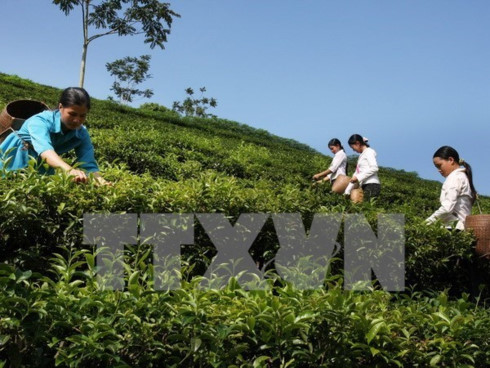Vietnam’s tea exports likely to increase in coming months
Vietnam’s tea exports are forecast to increase in both volume and value in the remaining months of 2017 due to growing global demand and limited supply.
- Vietnam seeks ways to boost fruit, veggie exports to EU
- Can Tho city posts strong export growth in nine months
- Cashew exports in eight months fetch US$2.2 billion
The reduction of output in major tea exporting countries such as Kenyan, India and Sri Lanka, will push up tea prices, benefiting Vietnamese enterprises in the short term.
According to the Ministry of Industry and Trade, Vietnam exported 103,000 tonnes of tea worth 164 million USD in the first nine months of 2017, representing year-on-year rises of 12 percent and 11.2 percent respectively.
 |
Pakistan, Taiwan and Russia were the biggest importers of tea from Vietnam, accounting for 51.5 percent of Vietnam’s total tea export turnover in the January-August period.
Besides opportunities, Vietnamese tea exporters are facing a number of challenges related to production costs, processing technology, quality standards, and marketing.
In the context of global economic integration, apart from tariff reduction, businesses have to suffer pressure from technical barriers, especially regarding food hygiene and safety.
To ensure sustainable growth of tea exports, local exporters need to join global value chains, promote tea production models meeting Good Agricultural Practice (VietGap) standards, build up brand names and invest in technology to penetrate into such choosy markets as the US and European Union (EU).
Vietnam has exported tea products to 110 countries and territories worldwide, with the Vietnamese tea brand names registered for protection in 70 countries and regions.
Vietnam is now the world’s seventh largest tea producer and fifth biggest tea exporter with 124,000 hectares under tea farming and over 500 facilities which produces more than 500,000 tonnes of dried tea per year.

